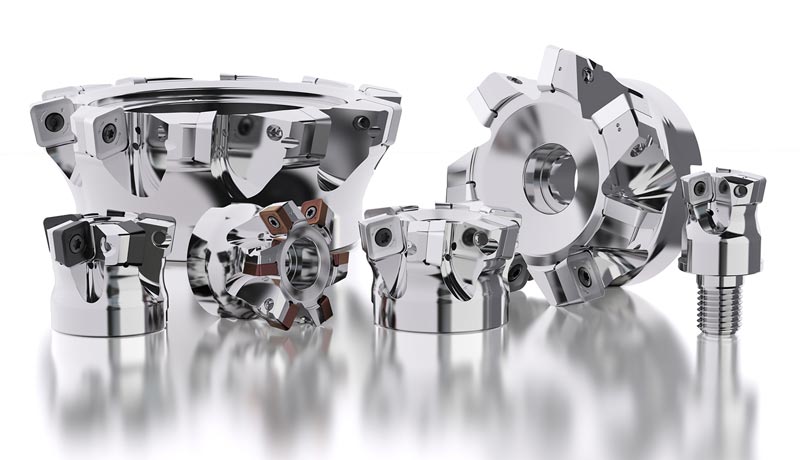Milling challenging materials like tough steels, stainless steels, superalloys and titanium cause built-up or notched edges and broken inserts that increase tooling costs and cause unexpected downtime. To overcome these challenging ISO P, M and S materials, the new next-generation Seco High Feed SP milling system features a combination of dedicated cutting geometries and insert grades, as well as optimized lead angles, that combine to boost material removal rates, maximize chip evacuation and extend tool life.
Reduce tooling inventories
Packed with versatility, one High Feed SP tool handles a complete range of high-feed milling operations and materials. The tool optimizes such operations as copy milling, ramping, pocketing, face milling and plunging to further reduce tooling inventories. Users optimize milling performance while eliminating the need to switch among numerous tools to implement various machining strategies and part materials.
“Premature tool wear increases job costs and leads to unexpected machine downtime that lengthens production time,” said Benoît Patriarca, Global Product Manager High Feed Milling at Seco Tools. “The combination of dedicated cutting geometries and grades with optimized leading angles of the High Feed SP system allow for faster machining to shorten job turnaround times, while also providing a superior price-to-performance ratio.”
Avoid downtime and scrapped parts
Designed for ease of use, the robust High Feed SP milling tools provide simple foolproof insert indexing that prevents operator mistakes, unexpected machine downtime and scrapped parts. Plus, users can quickly access product information through the Seco data matrix code scanning.
Seco offers a comprehensive range of High Feed SP tool sizes. The range includes:
- SP10: two geometries, 10 grades, dia 32 to 63mm + inch equivalents
- SP14: two geometries, 10 grades, dia 50 to 100mm + inch equivalents
- SP18: two geometries, 10 grades, dia 63 to 160mm + inch equivalents


